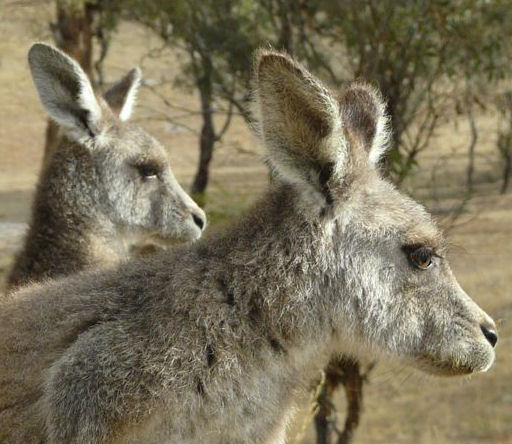Response from ACT Auditor General re audits of endangered species in ACT

Pino, died just recently after a very full young life, due to myopathy and related renal failure subsequent
to a fox attack
After publishing articles about reports by auditor generals in Tasmania, Victoria and West Australia, on the state of threatened species protection, I sent emails to the Auditor Generals in the ACT, the NT, NSW and South Australia.
Today I received this email from the Auditor General's office in the ACT. This response tells us that no audit has yet been done in the ACT. To me this is an indicator that the ACT statistics are probably in the same poor order as those in other states. I am grateful to the ACT Auditor General for their prompt response. The ACT State of the Environment Report referred to seemed unhelpful regarding reliability of statistics in the mean time.
It is of particular concern that the ACT is not monitoring its wildlife statistics for reliability, validity and effective coverage of the area regarding the species there because of the recent highly controversial culls of kangaroos in Belconnen and in Majura. I believe that I have personally raised enough questions about those culls here to justify a complete moritorium until such time as the collection of statistics and their interpretation and the theory of population dynamics in wildlife in the ACT is brought up to speed, which should include genetic testing for diversity and origin of populations. It sounds like the entire system needs replacing - and perhaps the people running it.
ACT Auditor General's Response 13/01/2010
Dear Ms Newman
Thank you for your inquiry.
My office has not conducted an audit on threatened species protection in the ACT.
The Office is aware of the work done in other jurisdictions, and considers this is an important issue to examine.
However, the Office will not be able to conduct such an audit in the near future, due to our very limited resources. As you would appreciate, there are a wide range of government activities and services covering law and order, education, health, environment, disability, housing, etc..that need to be audited.
I have fully committed our performance audit resources to a number of audits that will cover the next twelve months or so. Our annual planning for performance audits is subject to the availability of resources and the competing priorities of audit topics, as well as important emerging or unforeseen issues. There are also topics already planned to take place on the 2010-11 program.
The Office has now included the protection of threatened species as a potential audit topic to be considered in our forward planning. The merit and priority of such an audit will need to be considered against other topics. Further information about the Office's performance audit program, including how audit topics are selected is available on our website. http://www.audit.act.gov.au.
You may also be aware that the ACT Commissioner for the Environment also has an independent role in assessing government activities in protecting the environment, and can carry out investigations on these matters. The Commissioner has also produced a report which may cover the environment issues of interest to you. This report can be found at http://www.environmentcommissioner.act.gov.au/soe/2007actreport.
Thank you again for writing to us about this issue. Should you have any further questions, please contact me or Mr. Rod Nicholas on 62070833.
Yours sincerely
Tu Pham
ACT Auditor-General.
Sent: Thursday, 7 January 2010 1:54 PM
To: ACT Auditor General
Subject: Wildlife protection audits
Dear Sir/Madam,
Has the ACT Auditor General provided a report on threatened species protection in the ACT, or will it be doing so in the near future?
In 2009 the Victorian and the West Australian and Tasmanian Auditor Generals published reports on wildlife protection laws in those states:
Victorian Flora and Fauna Guarantee Act 1988
Tasmania: SPECIAL REPORT NO. 78
Management of threatened species
West Australia: Rich and Rare: Conservation of Threatened Species, Mr Murphy found that, in many areas, the Department of Environment and Conservation (DEC) is not providing effective protection and recovery to WA’s threatened flora and fauna.
Sincerely,
Sheila Newman
Environmental Sociologist

Recent comments